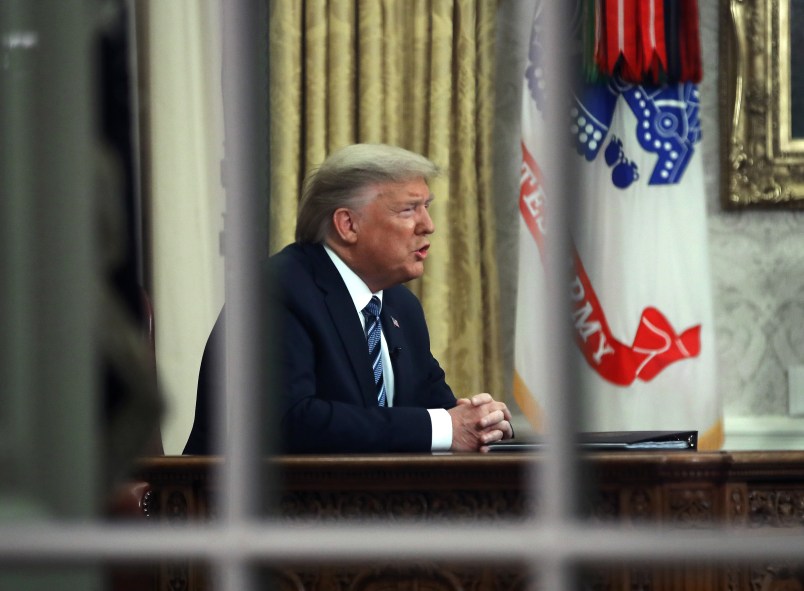President Donald Trump’s address from the Oval Office on coronavirus Wednesday night didn’t just send markets plunging (again) — it also required some immediate clean-up from the President and others because of numerous significant errors.
The President announced that travel from Europe, except the United Kingdom, would be suspended for 30 days in an effort to prevent the spread of COVID-19. But of course, it wasn’t really that simple. Here’s what he got wrong.
We’re not banning trade or cargo from Europe
Perhaps the most surprising line in Trump’s remarks was the announcement that trade, not only travel, would be suspended from Europe.
“These prohibitions will not only apply to the tremendous amount of trade and cargo, but various other things as we get approval,” he said.
That’s a huge deal!
But Trump quickly walked back his own claim, in a tweet prompting readers to “please remember” something he hadn’t actually said: “[T]rade will in no way be affected by the 30-day restriction on travel from Europe. The restriction stops people not goods.”
Hoping to get the payroll tax cut approved by both Republicans and Democrats, and please remember, very important for all countries & businesses to know that trade will in no way be affected by the 30-day restriction on travel from Europe. The restriction stops people not goods.
— Donald J. Trump (@realDonaldTrump) March 12, 2020
The ban won’t affect permanent residents or their immediate family
Trump on Wednesday laid out a narrow group that would not be affected by the ban: “Americans who have undergone appropriate screenings.”
The actual exemptions are much broader than that, as Ken Cuccinelli, who is performing the duties of the deputy Homeland Security secretary, later tweeted:
This does not apply to American citizens or legal permanent residents or their families. https://t.co/iZ2nrILhMg
— Acting Deputy Secretary Ken Cuccinelli (@HomelandKen) March 12, 2020
According to the presidential proclamation text the White House published soon after Trump’s address, there will be exemptions not only for American citizens, but also for lawful permanent residents, as well as their spouses. The ban does not apply to parents and legal guardians of citizens or permanent residents that are unmarried and under 21 years old. It also doesn’t apply to the siblings of a citizen or permanent resident, if both are under 21, or the children of citizens or permanent residents.
Non-residents with certain visas applying to be crewmembers on sea vessels and aircraft are also exempt, as are non-residents seeking entry for various diplomatic and law enforcement purposes.
In addition, the Health secretary, Homeland Security secretary, Attorney General and secretary of State also have the ability to designate individuals they want to allow in the country, according to the proclamation. The document also states that it will not affect an individual’s asylum eligibility.
Health insurance executives didn’t agree to waive copays for coronavirus treatments
Trump on Wednesday casually announced what would’ve amounted to a giant hole in the pockets of health insurances executives.
“Earlier this week, I met with the leaders of health insurance industry, who have agreed to waive all copayments for coronavirus treatments, extend insurance coverage to these treatments, and to prevent surprise medical billing,” Trump said.
Around the country, the air in c-suites grew heavy.
What insurances executives had in fact promised Trump was much more limited.
“For testing. Not for treatment,” a spokersperson for the insurance industry lobbying group America’s Health Insurance Plans told Politico’s Sarah Owermohle.
Trump's claim tonight that health insurers "have agreed to waive all copayments for coronavirus treatments" seems to be news to them.
“For testing. Not for treatment.” a spokesperson for the major insurance lobby AHIP says.
— Sarah Owermohle (@owermohle) March 12, 2020



